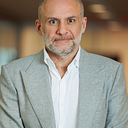Brands are Changing Their Image, but What’s Next?
In recent weeks, brands representing everything from pancake mix to professional football teams have made major public branding changes. In some cases, these changes had been under consideration for years, others for only a few short weeks.
All of them were in response to a growing public sentiment that brands which many consider to negatively represent certain people groups should be tossed on the dust heap of history.
One of the most recent announcements came from Unilever, which said it would drop its “Fair & Lovely” skincare product not long after PepsiCo said the Aunt Jemima name and image would be removed and those products rebranded.
Next came what was arguably one of the most anticipated — and some might say shocking — changes: Washington’s NFL team would no longer be known as the “Redskins.” Native American groups had been calling for that change to be made for years, but team owner Dan Snyder resisted. Recently, though, facing pressure from major advertisers, Snyder relented.
Some cultural critics and media influencers ask a follow-up question: “What’s next?”
For many activists and consumer advocates, name changes are great, but they are only a “first step” along a path that requires more. Brands may not be ready to take those steps, but influencers are already calling for them to do so. In one recent op-ed, the writer put it plainly: “Retiring a name does not take the place of systemic change…”
In the same article, the writer acknowledged that some brands might well be “prepared to do the hard work of confronting injustices” and “acknowledging their roles in perpetuating stereotypes…” However, this does not mean that the ways and means that these brands choose will satisfy those who are watching them very closely.
The clear, inescapable truth is this: many who cheered the rebranding of these household names, will just as quickly decry these companies if they don’t do more to publicly confront the issues these activists want to be placed into the spotlight. Many are calling for what they deem as “impactful change” while not precisely defining those standards or terms.
NFL commissioner Roger Goodell was criticized for the league’s apology “not going far enough” or, in some cases, not specifically including certain players, especially Colin Kaepernick. While those criticisms may not mean much to many NFL fans, it’s a good bet that Goodell is paying close attention to how the league’s advertisers are responding to the critiques.
Likewise, critics have come after both Unilever and PepsiCo, alleging that their branding changes and accompanying statements didn’t go far enough to, according to one popular narrative, “repair the damage done…”
The question, then, for these and many other brands making public name and image changes in this pivotal cultural moment, is this: “Where’s the line?”
How far can they go toward what the activists demand without alienating many of their other customers? It’s a calculus both the NFL and PepsiCo must do this accounting and move forward with yet more public decisions, just as, recently, both NASCAR and the NBA have done.
The former risked the wrath of traditionalists by banning the Confederate battle flag, and the latter recently painted Black Lives Matter on the courts where the soon-to-resume season’s games will be played.
What will brands like PepsiCo and Unilever, among others, do next? Time will tell. But they made the first move, and for the moment, the pressure is on for them to do more.
Ronn Torossian is the CEO and Founder of 5W Public Relations. 5W PR is a leading digital pr and influencer marketing agency.
